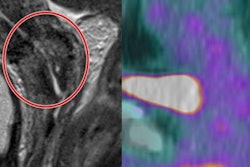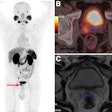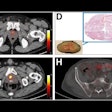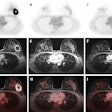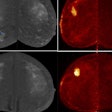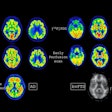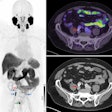Dear Molecular Imaging Insider,
When it comes to predicting outcomes after chemotherapy in patients with cervical cancer, the combination of PET/CT and MRI yields the best results, according to a recent award-winning study.
After reviewing nearly 100 cases of locally advanced cervical carcinoma that had received curative-intent conformal radiation therapy, researchers from the Leeds Teaching Hospitals NHS Trust in the U.K. found that combining PET/CT and MRI for response assessment yielded better results than either modality alone. You can read all about it in today's top article.
Meanwhile, PET/CT has revealed that COVID-19 mRNA vaccines appear to cause higher rates of reactive lymph nodes in cancer patients compared with whole-virus vaccines, according to researchers from the U.S. and Turkey. Learn more by clicking on our news report.
A group from France has concluded that an artificial intelligence model trained on whole-body scintigraphy images may be able to point out patients at risk of cardiac amyloidosis. The team believes that their algorithm could potentially be used to help identify thousands of undiagnosed patients every year.
Danish researchers reported that ultrasound may be a viable alternative to scintigraphy for presurgical imaging of patients with primary hyperparathyroidism. And another team from France has shared how PET/CT imaging with F-18 prostate specific membrane antigen (PSMA)-1007 detects significantly more prostate cancer than imaging using the standard F-18 fluorocholine radiotracer.
Breast PET/MRI imaging times can be cut in half without losing key diagnostic information, according to a group from Germany. In addition, PET/CT is superior for detecting bone metastases in women with invasive breast cancer and for predicting outcome in metastatic breast cancer.
Of course, these articles are just a sample of the articles published over the last month or so in the Molecular Imaging Community. See the full list below for all our recent coverage.






